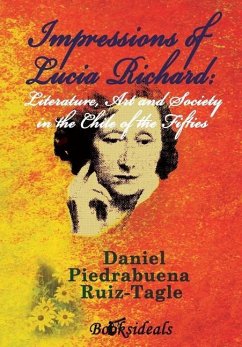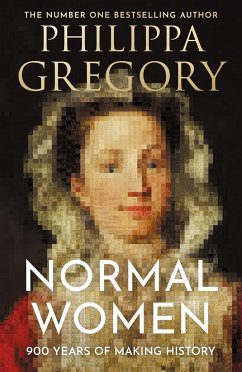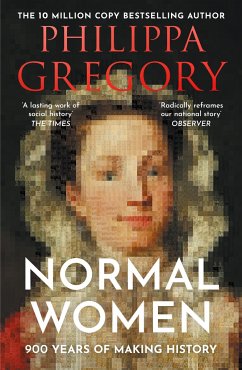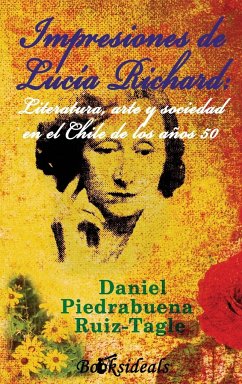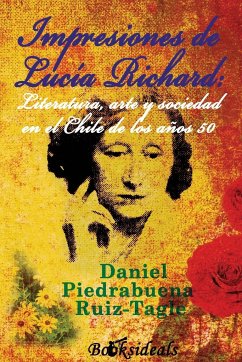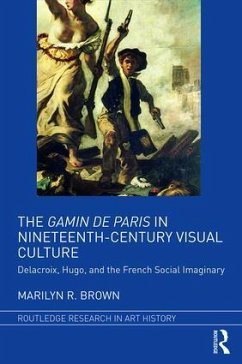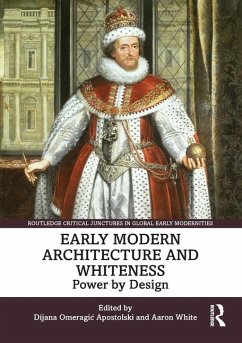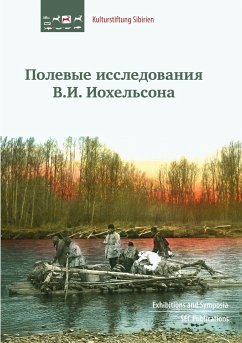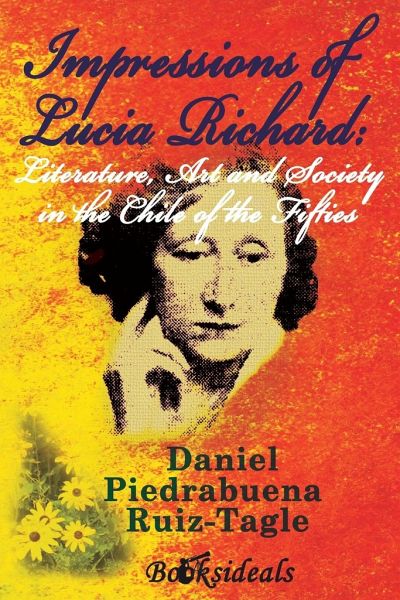
Impressions of Lucia Richard; Literature, Art and Society in the Chile of the Fifties

PAYBACK Punkte
9 °P sammeln!
A FUNDAMENTAL TEXT FOR UNDERSTANDING CHILEAN CULTURE, ITS LITERARY AND ARTISTIC MOVEMENTS AND ITS REACCTION TO THE EMERGENCE OF PABLO NERUDA Through the pages of Impressions of Lucía Richard, we delve into the literary and artistic legacy of poet, writer, storyteller, essayist, columnist, lecturer, biographer, and radio broadcaster Lucía Richard. This captivating work explores the creation and activities of the so-called Cenacle of Poetry at the Conservatory of Declamation, offering an engaging account not only of Lucía Richard but also of her companions. Notably, it focuses on a group of w...
A FUNDAMENTAL TEXT FOR UNDERSTANDING CHILEAN CULTURE, ITS LITERARY AND ARTISTIC MOVEMENTS AND ITS REACCTION TO THE EMERGENCE OF PABLO NERUDA Through the pages of Impressions of Lucía Richard, we delve into the literary and artistic legacy of poet, writer, storyteller, essayist, columnist, lecturer, biographer, and radio broadcaster Lucía Richard. This captivating work explores the creation and activities of the so-called Cenacle of Poetry at the Conservatory of Declamation, offering an engaging account not only of Lucía Richard but also of her companions. Notably, it focuses on a group of women in the 1940s and 1950s, shedding light on events that have remained largely overlooked until now. Among their achievements was the founding of the House of America in Santiago and the numerous initiatives and projects led by these individuals. This is a groundbreaking work in its genre, offering a heartfelt portrayal of Vera Zouroff and her entire group. Through recitals, lectures, Latin American congresses, and publications, these women united their voices to express their truths, pursuing an ideal that has endured to this day. The involvement and recognition of these groups by prominent figures such as Samuel Lillo, Gabriela Mistral, Miguel Rocuant, Inés Echeverría, Jorge Gustavo Silva, and many others confer a mark of distinction and lasting significance to their dedicated work. We encounter the powerful emotional strength of a group that actively fought to carve out its place in history, restore the dignity of women, and ultimately foster a sense of brotherhood among the peoples of the Americas. Their aspiration for universality drove them to build a transnational project intended to withstand the passage of time, spreading a message both inspired and altruistic. This mission gave meaning to their lives through the revitalization of their cultural heritage in pursuit of a fairer and freer world. They stood against the rigidity of Santiago's society during a time of profound transformation. In this journey, they encountered the towering figure of Pablo Neruda-a titan who reshaped their world with a language both modern and beautiful, provoking a wide range of reactions among them. He was first a rival to be challenged and later a god to be revered. Along the way, these women faced countless obstacles, but their ideals-love, truth, and spirit-remained steadfast on the horizon. They envisioned a world where culture, identity, and the forward-looking essence of humanity could be elevated. In this pursuit, they forged the greatness of their dreams, reminding us that life's most beautiful treasures are within everyone's reach. In summary, this text offers valuable insight into Chilean literature, pre-Neruda Chilean poetry, the activities of a diverse group involving both men and women, Chile's cultural and artistic movements, and an engaging chapter in the country's history.





